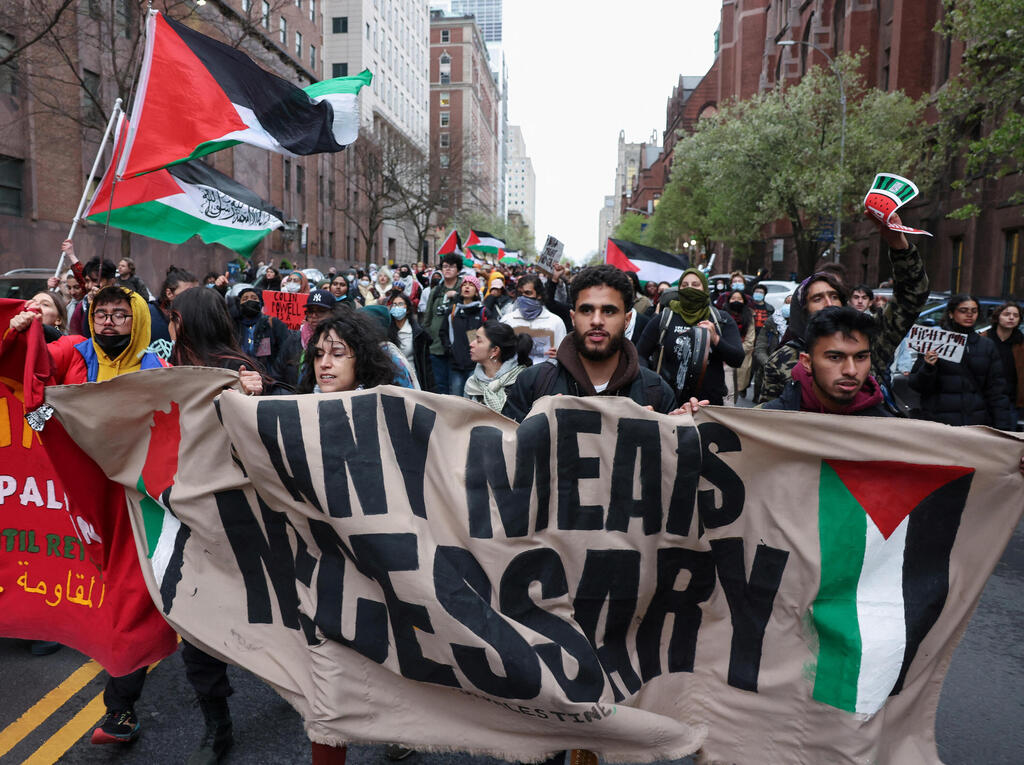The fight over Columbia University’s funding is about to hit a critical juncture, and looming in the background is a powerful foreign player: Qatar.
The Trump administration's decision to cut $400 million in federal grants and contracts to Columbia over the university’s failure to protect Jewish students during campus protests has triggered a chain of events that could change the landscape of American higher education forever. As Columbia faces a funding crisis, a troubling possibility arises — Qatar may step in to fill the void. The implications are profound, not just for Columbia, but for U.S. academia as a whole.
2 View gallery


Emir of Qatar Sheikh Tamim bin Hamad Al-Thani
(Photo: Reuters / Saudi Press Agency/Handout)
Qatar has been using its immense wealth to embed itself in U.S. universities for years, manipulating academic priorities and influencing research agendas to align with its interests. Columbia University is no exception. From funding energy research to offering scholarships and supporting entire academic projects, Qatar has poured millions into the Ivy League institution. But these investments are far from charitable; they are part of a broader strategy to shape global discourse and influence American policy.
This, however, is just the tip of the iceberg. As federal funding dries up, Qatar’s grip on the university could become even tighter, raising concerns about foreign influence in U.S. education, particularly from a country with a track record of promoting anti-Western and anti-democratic ideologies.
The situation is particularly concerning given the recent history of Columbia University. Last year, protests over the Gaza conflict sparked a nationwide debate about antisemitism, free speech, and the role of foreign influence on U.S. campuses. Jewish students at Columbia reported harassment and intimidation, and the Trump administration took decisive action, slashing the university’s federal funding. The move was clear: universities that fail to protect Jewish students from harassment will face consequences. But instead of addressing the root causes of these issues, Columbia may now turn to an even more problematic benefactor — Qatar, which has a history of using financial leverage to promote its own political agenda.
<< Get the Ynetnews app on your smartphone: Google Play: https://bit.ly/4eJ37pE | Apple App Store: https://bit.ly/3ZL7iNv >>
The scale of Qatar’s influence at Columbia University is particularly concerning. Qatar Foundation International (QFI) has funded a variety of academic collaborations at Columbia, including research projects on energy, education, and the Middle East. Qatar has also supported numerous student scholarships through the Amiri Scholarship Program, which has sent dozens of Qatari students to Columbia. This is all part of a broader campaign to align academic discourse with Qatar’s interests. But now, with Columbia facing a financial crisis after Trump’s funding cuts, the stakes are even higher. If Qatar steps in to replace lost federal funds, the university could become even more indebted to foreign money, and with that comes the risk of compromising its academic freedom and integrity.
 Amine Ayoub
Amine AyoubThe question of whether Qatar will fill the funding gap left by the U.S. federal government is a defining moment not just for Columbia, but for U.S. higher education as a whole. If Qatar takes over, it will set a dangerous precedent for other American universities. As more foreign governments — many of which do not share the democratic values that American universities espouse — pour money into U.S. academic institutions, the risk of ideological manipulation grows. Qatar’s financial influence could shape research agendas, student programs, and even faculty hiring practices, all in ways that serve the interests of the Qatari regime.
Now is the time for President Trump and his administration to take action. While the administration’s decision to cut funding to Columbia was an important first step in combating antisemitism and radicalization on U.S. campuses, it’s clear that more must be done to address the growing problem of foreign influence. The flood of foreign money pouring into American universities must be stopped, or at the very least, closely monitored. Trump has already shown a willingness to take on institutions that fail to protect Jewish students, but it’s time to take the fight further. Qatar’s influence in U.S. academia must be curtailed, and universities that accept foreign funding should be held accountable for where that money comes from and what influence it buys.
Amine Ayoub is a policy analyst and writer based in Morocco



